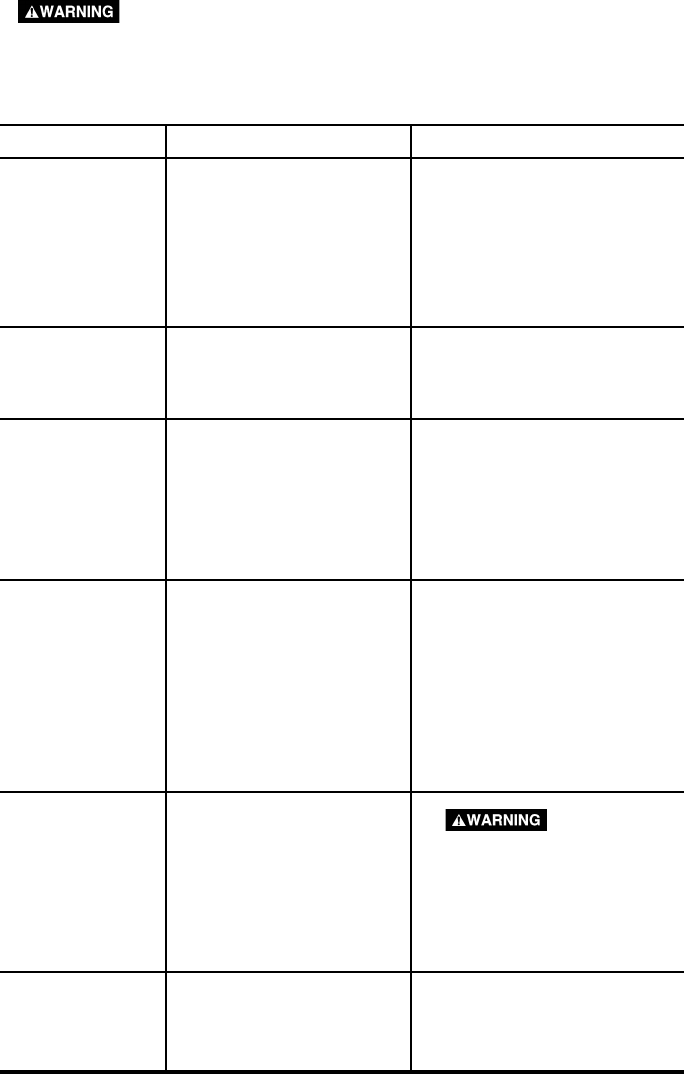
13-ENG
CAUSE
PERFORMING REPAIRS MAY EXPOSE VOLTAGE SOURCES,
MOVING PARTS OR COMPRESSED AIR SOURCES. PERSONAL INJURY
MAY OCCUR. PRIOR TO ATTEMPTING ANY REPAIRS, UNPLUG THE AIR
COMPRESSOR AND BLEED OFF ALL AIR TANK AIR PRESSURE.
PROBLEM
CORRECTION
TROUBLESHOOTING GUIDE
Excessive tank
pressure - safety
valve pops off.
Pressure switch does not shut
off motor when compressor
reaches “cut-out” pressure.
Pressure switch “cut-out” too
high.
Move the pressure switch lever to
the “OFF” position. If the unit
doesn’t shut off, and the electrical
contacts are welded together,
replace the pressure switch.
Contact an authorized service
center to check and replace
pressure switch.
Air leaks at fittings. Tube fittings are not tight
enough.
Tighten fittings where air can be
heard escaping. Check fittings with
soapy water solution. DO NOT
OVER-TIGHTEN.
Air leaks at or inside
check valve.
Malfunctioning or dirty check
valve.
A malfunctioning check valve
results in a constant air leak at the
pressure release valve when
pressure is in the tank and the
compressor is shut off. Drain tank
then remove and clean or replace
check valve. DO NOT OVER-
TIGHTEN.
Air leaks at pressure
switch release valve.
Malfunctioning pressure switch
release valve.
Malfunctioning check valve.
Remove and replace the release
valve.
A malfunctioning check valve
results in a constant air leak at the
pressure release valve when
pressure is in the tank and the
compressor is shut off. Drain tank
then remove and clean or replace
check valve. DO NOT OVER-
TIGHTEN.
Damaged air tank.
DO NOT
DRILL INTO, WELD OR
OTHERWISE MODIFY AIR
TANK OR IT WILL
WEAKEN. THE TANK CAN
RUPTURE OR EXPLODE.
TANK MUST BE RE-
PLACED.
Air leaks between
head and valve
plate.
Leaking o-ring. Torque head screws to 8 ft.-lbs. If
this does not stop leak, replace o-
ring.
Air leaks in air tank or
at air tank welds.


















